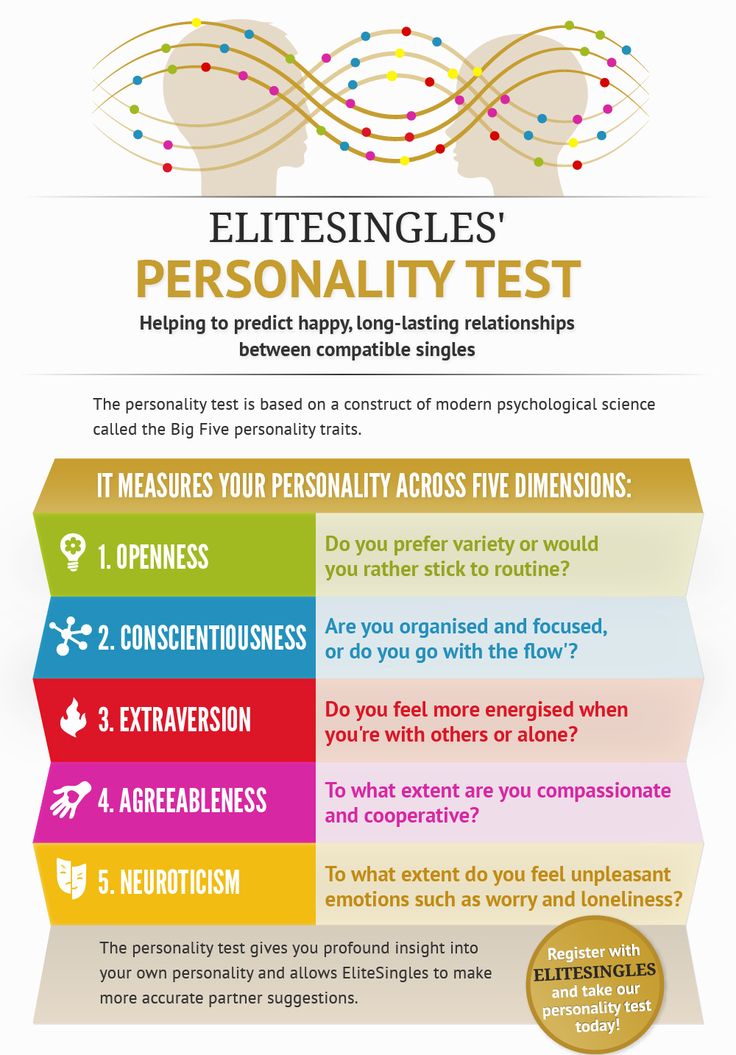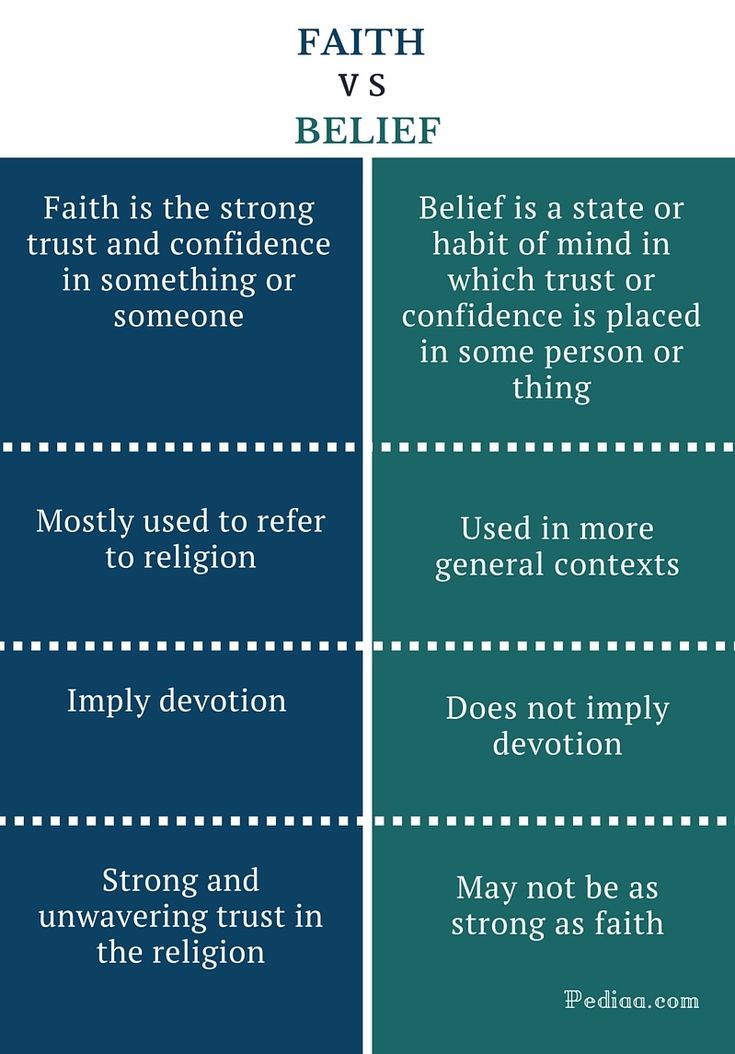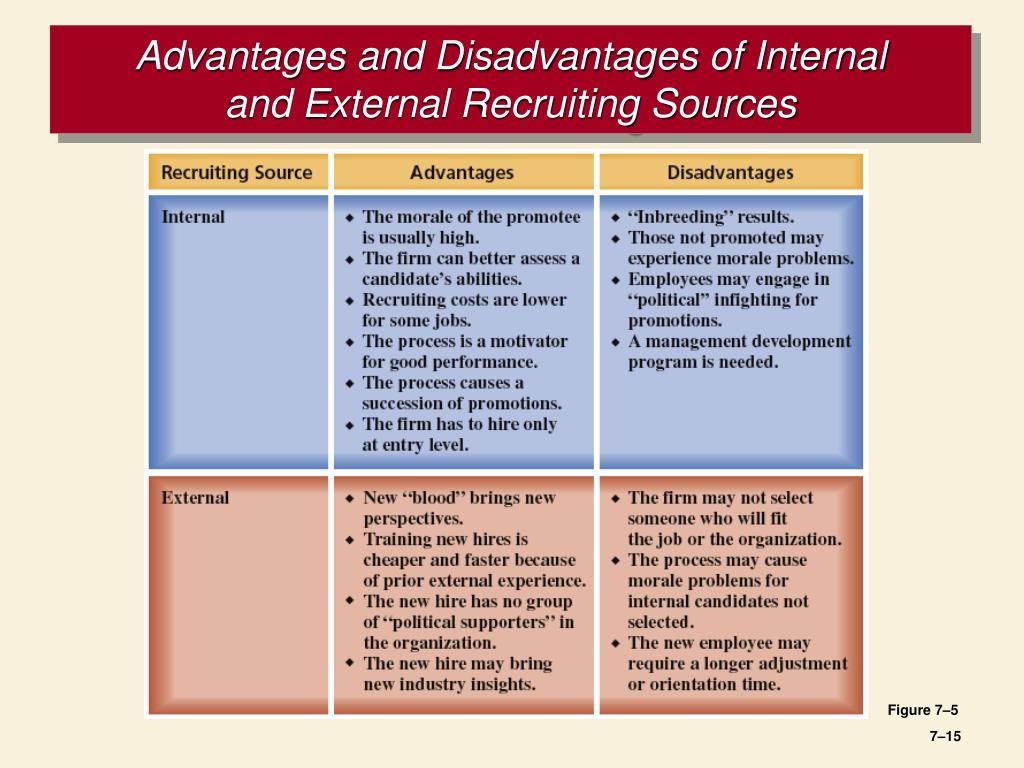How to not let people bother you
9 Ways To Manage People Who Bother You
Ever faced people who bother you? I’m sure all of us have faced such people before. It’s okay when we have to face them just once or twice, but there are times when these people emerge in facets of our life where we have to deal with them on an ongoing basis. They can be business associates, fellow colleagues, friends, or even family members and relatives. In such cases, we have to learn how to deal with them. Here are my 9 tips to handle such people:
1. You can only change yourself.When dealing with people, always remember that it’s not about changing others, but about changing yourself. You can try to change others, but you may not succeed doing so. The best way to address the situation is to change how you perceive it and how you react to it. By changing that, everything else will subsequently change as well.
⌄ Scroll down to continue reading article ⌄
⌄ Scroll down to continue reading article ⌄
2.Be clear on what you will tolerate and what you will not tolerate. Then stick with it. You have your own personal space and it’s your perogative to protect your space. By drawing the boundaries, even if just mentally, you are clearer of the kind of behaviors to expect from others. If you don’t do so, it’s easy for you to be pushed over by others, especially since such people tend not to be conscious of personal boundaries. You’ll wind up shrinking in a corner and feeling miserable, and you wouldn’t want that.
3. Be upfront about where you stand.If the person has a history of spilling into your personal space, then let him/her know where you stand the next time you communicate. People aren’t mind readers, and sometimes they may not be aware that they are infringing on your space. Giving the person some indicators will help. If he/she tends to take up a lot of your time, then let him/her know that you have XX minutes at the onstart of the conversation. That way, you are being fair by informing him/her in advance. If you prefer to communicate via email/text/chat/other channels, then let him/her know too.
That way, you are being fair by informing him/her in advance. If you prefer to communicate via email/text/chat/other channels, then let him/her know too.
⌄ Scroll down to continue reading article ⌄
⌄ Scroll down to continue reading article ⌄
4. Be firm when needed.If the person does not stick within the boundaries, then enforce them. Give a gentle reminder at first. If he/she still does not get the hint, then make a call and draw the line right there. I used to be very relenting in my communications. I would attend the person for however long it took. In the end it enroached on my personal space, and I wasn’t sure if all that time and energy I spent ever did anything too. As I gradually pushed back and became firm on my boundaries, I was a lot more fulfilled. I realized if I wasn’t meeting my needs, I couldn’t be helping anyone with theirs.
5. Ignore them.Ignoring is effective in the right moments.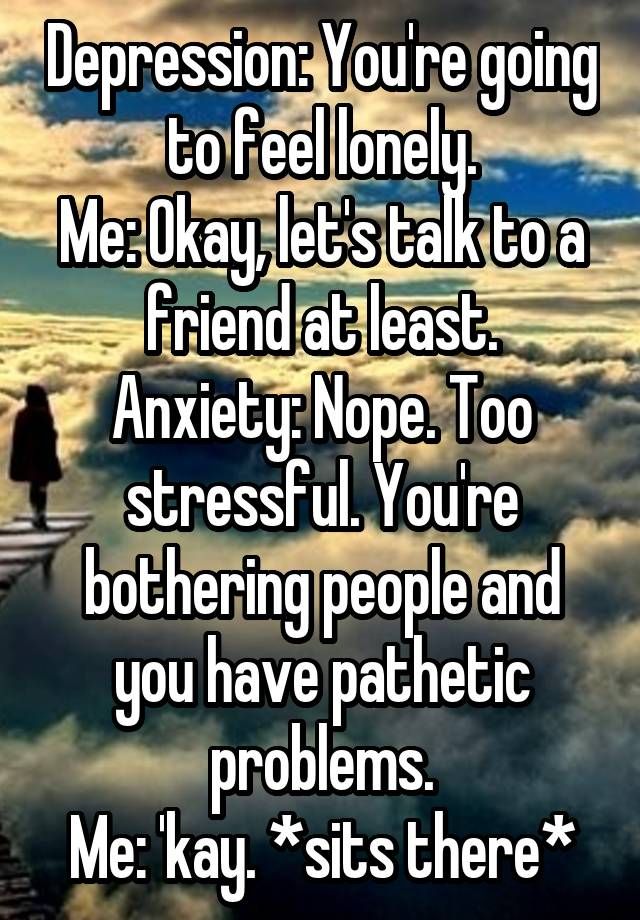 When you respond, you give them a reason to continue their behavior. If you just ignore, they don’t have a choice but to seek out someone else. Not only that, it also hints to them about their behavior and helps them do some self-reflection.
When you respond, you give them a reason to continue their behavior. If you just ignore, they don’t have a choice but to seek out someone else. Not only that, it also hints to them about their behavior and helps them do some self-reflection.
⌄ Scroll down to continue reading article ⌄
⌄ Scroll down to continue reading article ⌄
6. Don’t take it personally.Most of the times, these people behave the same way around others too. I had a friend who was very negative. She always had something to criticize whenever we were together. At first I thought she had something against me, but after I observed her interacting with our common friends, I realized she was like that with everyone else too. Realizing it wasn’t anything personal helped me deal with her objectively.
7. Observe how others handle them.Watching others deal with the same person you find annoying can be an eye-opening perspective. Even if the person may be at his/her wits-end handling the individual, just observing from a third party’s point of view can give you insights on how to manage. The next time you are with this person, get someone else into the conversation too. Take a back seat by broaching a topic that’s relevant between the two of them, then play the silent role in the situation. Observe how the other party handles him/her. Try this exercise with different people – from savvy networkers, someone you find difficult to deal with as well, someone similar to you, etc. You will get interesting results.
Even if the person may be at his/her wits-end handling the individual, just observing from a third party’s point of view can give you insights on how to manage. The next time you are with this person, get someone else into the conversation too. Take a back seat by broaching a topic that’s relevant between the two of them, then play the silent role in the situation. Observe how the other party handles him/her. Try this exercise with different people – from savvy networkers, someone you find difficult to deal with as well, someone similar to you, etc. You will get interesting results.
⌄ Scroll down to continue reading article ⌄
⌄ Scroll down to continue reading article ⌄
8. Show kindness.Often times, they act the way they do because they are looking for an empathetic ear. Hear what they have to say, and be empathetic towards them. Give them some friendly act of kindness. Don’t impose on them, but just be there and empathize. It might well do the trick.
It might well do the trick.
There was once when I had a long talk with a client on an issue she was facing. Later in the week, I sent her an sms telling her that ultimately it boiled down to her, and as long as she believed in herself, there was nothing insurmountable. Many weeks after that, we were catching up, and she told me how the message was really encouraging for her. She normally deleted all her smses but left that one in her phone. A little kind act from you may take little effort on your part but mean the world to others.
⌄ Scroll down to continue reading article ⌄
⌄ Scroll down to continue reading article ⌄
9. Help them.Beneath the facade is really a cry for help. Check with them if they need any help, or if there is anything you can do to help them. Sometimes, it’s possible they require help but they don’t know how to articulate it. Help them to uncover their problem, then work with them to analyze the issue and discover the solution. It’s important to still let them take charge in the situation, because the end outcome is you want them to learn to take control of the situation, and not grow dependent on you for help.
It’s important to still let them take charge in the situation, because the end outcome is you want them to learn to take control of the situation, and not grow dependent on you for help.
Image ©
10 Ways to Stop Giving People Power Over You
Psychotherapist: 10 Ways to Stop Giving People Power Over You Search iconA magnifying glass. It indicates, "Click to perform a search". Insider logoThe word "Insider".US Markets Loading... H M S In the news
Chevron iconIt indicates an expandable section or menu, or sometimes previous / next navigation options.HOMEPAGEStrategy
Save Article IconA bookmarkShare iconAn curved arrow pointing right.
Download the app
Don't give others power over your life. Rido/Shutterstock- When someone has a negative influence over any aspect of your life, you're giving them power over you — and that can hold you back.
- Instead, establish healthy boundaries with the people around you — and assume responsibility for your emotions, not theirs.
- Follow your values, and realize that you're always making choices — you should be doing things for you, and not to prove yourself to other people.
- Don't spend your time complaining or thinking about bad interactions.
- Visit Business Insider's homepage for more stories.
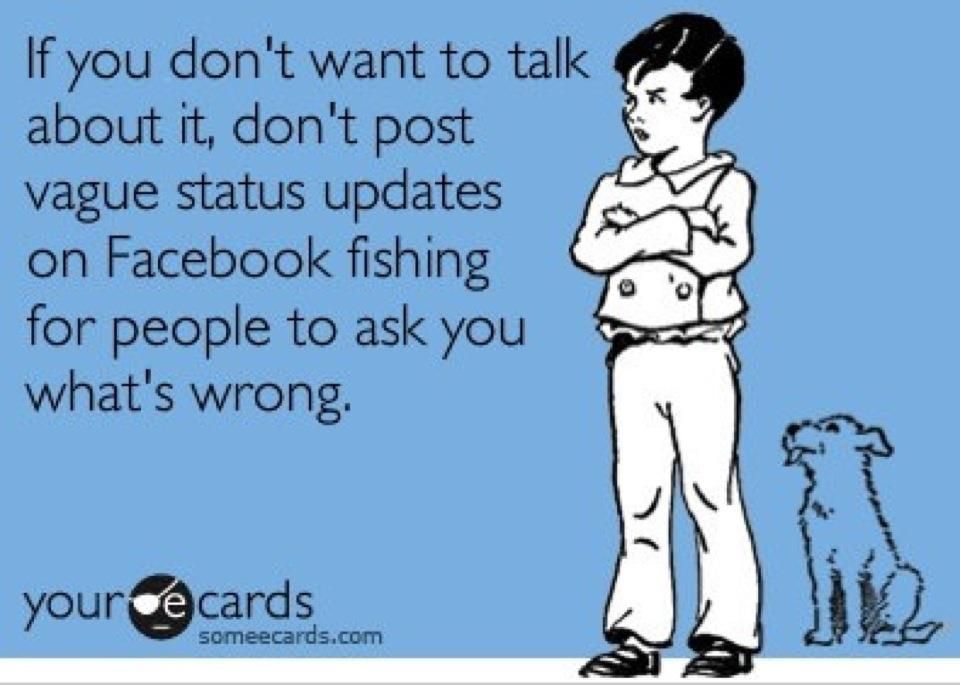
Any time you allow someone to have a negative influence over the way you think, feel, or behave, you give them power over you.
Sometimes it's subtle. Maybe you change the way you act around certain people because you want to please them, but it doesn't impact your life too much.
Or maybe it's major. Perhaps you allow a loved one's harsh criticism to take a serious toll on your well-being.
Either way, giving away your personal power drains you of the mental strength you need to be your best. Here are 10 ways to stop giving people power over you.
1. Establish healthy boundaries
Ask for what you need. WAYHOME studio/ShutterstockWhether you have a coworker who wastes your time venting about how much she dislikes her job, or a friend who always asks to borrow money, some people will take your time, money, and space if you allow them to do so.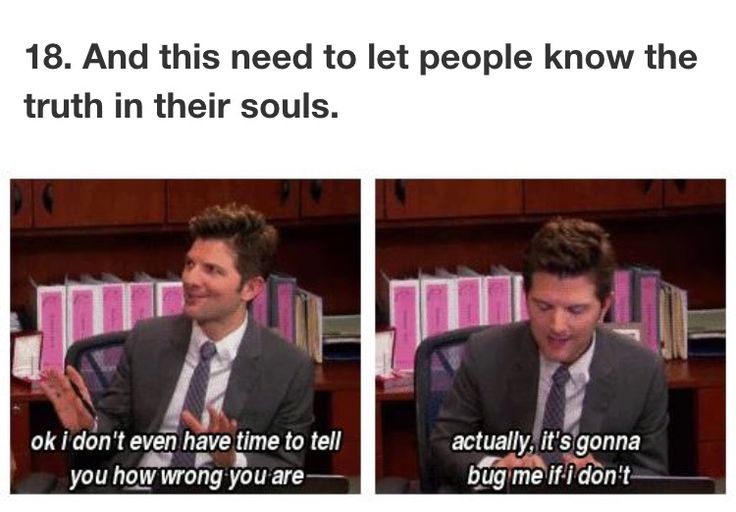 It's important to set healthy boundaries for yourself.
It's important to set healthy boundaries for yourself.
Say no, speak up, and ask for what you need. When people violate your boundaries, follow through with clear consequences.
2. Take responsibility for your emotions
Take positive action. hsyncoban/GettyDon't blame anyone else for making you feel guilty or making you feel bad about yourself. Take full responsibility for how you feel.
If someone is affecting your emotions in an unhelpful manner, take positive action. Either change the situation, or change how you respond to the situation. Perhaps you decide to walk away and enter a new environment. Or, maybe you decide to take a few deep breaths, practice using some positive self-talk and continue to engage in a difficult conversation.
Either change the situation, or change how you respond to the situation. Perhaps you decide to walk away and enter a new environment. Or, maybe you decide to take a few deep breaths, practice using some positive self-talk and continue to engage in a difficult conversation.
3. Let other people be responsible for their emotions
You don't manage how others feel. JGI/Jamie Grill/Getty ImagesOn another note, don't take on responsibility for other people's emotions. You can't make everyone happy, and you can't make anyone mad.
You can't make everyone happy, and you can't make anyone mad.
While it's important to be cognizant of how your actions affect others, it's not up to you to manage how other people feel.
4. Acknowledge your choices
Seeing things as choices helps empower you. dot shock/ShutterstockWhen you find yourself thinking you have to do something, change your language. You don't have to go grocery shopping. And you don't have to take the dog to the vet.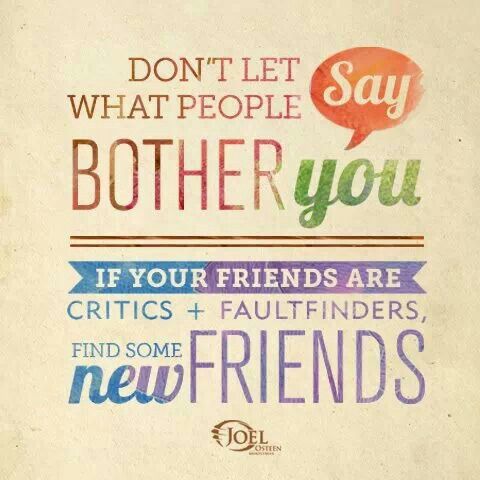 These are choices.
These are choices.
Even going to work and paying your bills are choices. Of course, there are consequences if you don't do these things, but acknowledging you have some say in the matter empowers you to take responsibility for your own life.
5. Live according to your values
Identify what's most important to you. Paolo Paradiso / Shutterstock.comYou'll care less about going along with the crowd, and you'll be less concerned about other people's opinions when you're clear on your values. Identify the things that are most important to you, and live accordingly. Whether that means you value your free time, you work long hours, you enjoy hobbies, or you practice your faith, spend time and energy on the things that are important to you. When you are confident in your priorities, other people's judgments will matter less.
Identify the things that are most important to you, and live accordingly. Whether that means you value your free time, you work long hours, you enjoy hobbies, or you practice your faith, spend time and energy on the things that are important to you. When you are confident in your priorities, other people's judgments will matter less.
6. Forgive, and move forward
You don't have to associate with them. GaudiLab / ShutterstockHolding onto a grudge diminishes your life, not anyone else's. Don't waste your precious time and energy rehashing your past hurts and trying to punish someone else.
Recognize, however, that forgiveness isn't about saying what someone did was okay. And it doesn't mean you have to associate with them. Instead, forgiveness can involve letting go of anger that is keeping you stuck so you can focus on more worthwhile things.
7. Stop trying to prove people wrong
Work on goals for yourself. Westend61/Getty ImagesYou might feel empowered for a little while when you say, "I'll show them!" But trying to prove people wrong actually gives them power over you.
Trying to show someone that you're better than they give you credit for is about them, not you. Work on goals that matter to you. If you surprise people along the way, consider it an added bonus rather than the main objective.
8. Don't let your self-worth depend on other people's opinions
Do things that make you feel good. Martin Novak/Getty ImagesIf you need approval or affirmation from others that you're good enough, those individuals will always have power over you. Don't make your self-worth dependent on anyone else.
Don't make your self-worth dependent on anyone else.
Do the things that make you feel like a good person (whether it means going to the gym or volunteering to help others), and your self-worth will be built on a much steadier, more independent foundation.
9. Don't waste energy complaining
It lets them occupy more space in your life. ShutterstockThe more time you spend complaining about people, the more space you allow them to occupy in your life. So before you dive into a 20-minute monologue about how much you dislike your boss or how annoying your sister-in-law is, think about the fact that you'll be devoting more time and energy to them. Choose to use your time and energy on more positive, worthwhile activities.
So before you dive into a 20-minute monologue about how much you dislike your boss or how annoying your sister-in-law is, think about the fact that you'll be devoting more time and energy to them. Choose to use your time and energy on more positive, worthwhile activities.
10. Stop thinking about unhelpful interactions with others
Don't ruminate on hurtful things. tommaso79/Getty ImagesRehashing conversations and imagining dreadful interactions allows people to take up more of your brain power. While you certainly want to learn from mistakes and plan for the future, don't ruminate on the hurtful things someone already said or the rude comments they might make in the future.
While you certainly want to learn from mistakes and plan for the future, don't ruminate on the hurtful things someone already said or the rude comments they might make in the future.
When you notice these unhelpful scripts playing out in your head, change the channel in your brain. Whether this means you need to get some physical activity or it means talking to a friend about a completely different subject, refuse to focus on people who drag you down.
Read next
LoadingSomething is loading.Thanks for signing up!
Access your favorite topics in a personalized feed while you're on the go.
More...
How to stop worrying about what others think of you
January 31, 2021 Life
You can spend your whole life worrying about the opinions of others. Or you can become smarter and save yourself a lot of nerves.
Share
0You can listen to this article. If it's more convenient for you, turn on the podcast.
Why do we care about other people's opinion
Each person wants to please others, dreams of being attractive in the eyes of others.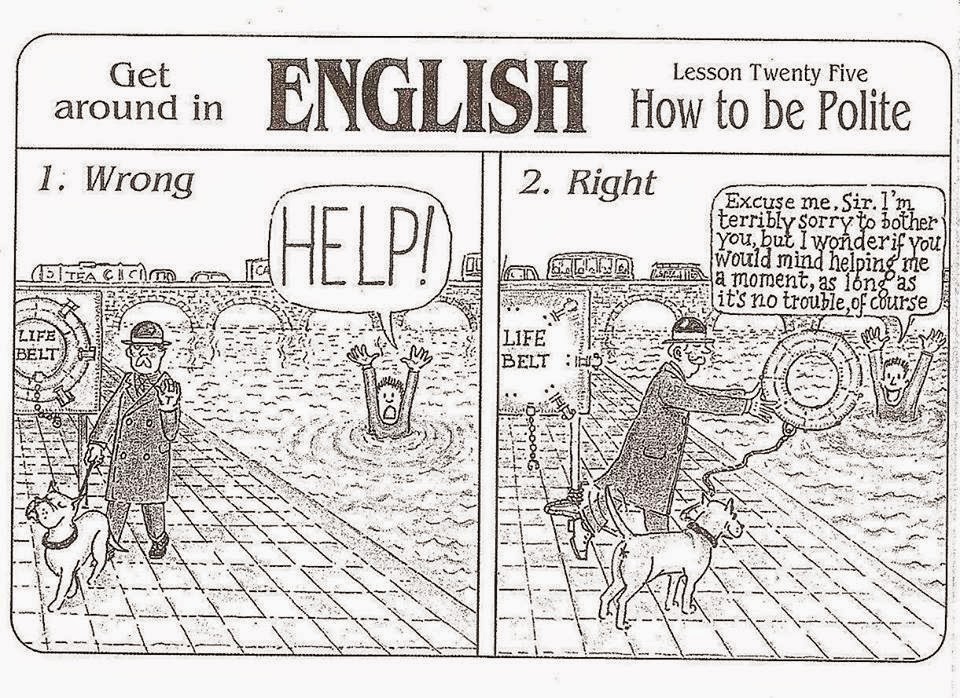 Many constantly monitor their Facebook* and Instagram* pages, counting likes and comments. To please others is a desire that came into being with us.
Many constantly monitor their Facebook* and Instagram* pages, counting likes and comments. To please others is a desire that came into being with us.
As we grow older, we learn to separate our thoughts and emotions from the opinions of others, but many of us continue to seek, and in some cases, ask others for approval of our actions. This can lead to serious problems, especially when it comes to self-esteem and happiness. Recently, a survey was conducted, in which 3,000 people took part. 67% of the respondents admitted that their self-esteem directly depends on the opinions of other people.
We react to everything that surrounds us. We have long-held expectations about how the world should work and how the people who inhabit it should behave. And one of our well-established beliefs is that we know how other people should react to us, to our appearance and behavior.
About 100 years ago, sociologist Charles Cooley developed the theory of the mirror self, which is as follows:
I am not what I think of myself, and I am not what others think of me.
I am what I think about what others think of me.
This proves once again how much importance we attach to other people's opinions.
However, we forget that other people often judge us on the basis of their past experiences, habits, feelings - everything that has nothing to do with us. Therefore, basing self-esteem on the opinions of other people is very unreliable.
When you completely rely on the evaluation of other people, you try in every way to please them, rise in their eyes, and eventually lose your "I".
But there is good news: we can stop this. We can become self-sufficient and not look at others, wondering how they evaluate our every step.
How not to worry about other people's opinions
1. Remind yourself that many people don't think about you at all
We'd be less worried about what others think of us if we realized how rarely they do. do.
Ethel Barrett
writer
Nothing could be closer to the truth than this statement. Other people have better things to do than sit and think about you. If it seems to you that someone thinks badly of you, mentally criticizes you, stop: maybe this is a figment of your imagination? Perhaps this is just an illusion that is fueled by your inner fears and self-doubt. If you constantly engage in self-flagellation, it will become a real problem that will poison your whole life.
Other people have better things to do than sit and think about you. If it seems to you that someone thinks badly of you, mentally criticizes you, stop: maybe this is a figment of your imagination? Perhaps this is just an illusion that is fueled by your inner fears and self-doubt. If you constantly engage in self-flagellation, it will become a real problem that will poison your whole life.
2. Think with your head
Sit down and in a calm atmosphere think about the place in your life that other people's opinions occupy. Think about situations in which the evaluations of others are meaningful to you. Determine how you respond to them. If you understand that the assessments and opinions of others determine your self-esteem, then consider changing your behavior model.
Say to yourself: "Instead of relying on others again, I will learn to listen and hear my own thoughts and think exclusively with my own head." Learn to cut off unnecessary noise, to separate the wheat from the chaff. The more often you do this, the faster it will become a habit.
The more often you do this, the faster it will become a habit.
The ultimate goal of all this is to never let the opinions of others determine who you are and how you live. Understand that no one will ever be able to make you feel like a "little man" unless you yourself give him this power.
3. Feel free - don't seek to know what others think of you
When people start to exhibit their creations in public, such as blogging, they often worry about whether others will like you. They worry even more when they torment themselves with thoughts that other people do not like their work. Until one day they realize how much strength and energy they spend on these useless experiences.
Have a new mantra that you repeat to yourself day after day:
This is my life, my choices, my mistakes and my lessons. I shouldn't care what others think about it.
4. Notice what really matters
People will always think what they want. You cannot control the thoughts of others. Even if you choose your words carefully and have excellent manners, this does not mean that you will be good for everyone. Everything can be misinterpreted and turned upside down.
You cannot control the thoughts of others. Even if you choose your words carefully and have excellent manners, this does not mean that you will be good for everyone. Everything can be misinterpreted and turned upside down.
What really matters is how you rate yourself. Therefore, when making important decisions, try to be 100% true to your beliefs and values. Never be afraid to do what you think is right.
Begin by listing 5-10 qualities that are important to you. For example:
- honesty;
- self-respect;
- self-discipline;
- compassion;
- focus on success and so on.
If you have a list like this, you will be much less likely to make unbalanced decisions, you will have a system of principles and, ultimately, you will have something to respect yourself for.
5. Stop thinking that not being liked by someone is the end of the world
What if they don't like me? What if the person I care about refuses me? What if I am considered a black sheep? These and similar questions too often torment people. Remember: if someone doesn't like you, and even if the person you care about doesn't feel the same way about you, it's not the end of the world.
Remember: if someone doesn't like you, and even if the person you care about doesn't feel the same way about you, it's not the end of the world.
But we continue to be afraid of this mythical "end of the world" and allow our fears to get the best of us, while we ourselves constantly feed them.
Ask yourself: “If my fears come true and the worst happens, what will I do?” Tell yourself a story (or better yet, write it down) about how you will feel after the rejection, how disappointed you will be, and then you will realize that this is a negative, but still experience, and you will move on. This simple exercise will help you understand that not being liked by someone is not so scary.
Read also 🧐
- Why you shouldn't share your goals with others
- How to stop pleasing others: 5 steps to independence
- The paradox of tolerance: why you can't put up with someone else's opinion all the time
*Activity of Meta Platforms Inc. and its social networks Facebook and Instagram are prohibited in the territory of the Russian Federation.
and its social networks Facebook and Instagram are prohibited in the territory of the Russian Federation.
Get Out: 7 Common Self-Destructive Behaviors
Mark Goulston, MD, lists 40 of the most common self-destructive behaviors in his book Get Out of Your Own Life. Yulia Bayandina, co-director and partner of the Mann, Ivanov and Ferber publishing house, has selected and analyzed seven of the most common of them.
How to stop feeling sorry for yourself, learn to ask for help and not give up ambitions because of the feeling “I'm not ready yet”. Obstacles in our path are often the work of our own hands. Mark Goulston, MD, has been practicing clinical psychology for over twenty years. He is sure that the main reason why people turn to psychotherapists is self-destructive behavior. Nothing pisses us off like realizing that we ourselves are preventing ourselves from finding love, achieving success and experiencing happiness - in a word, getting what we dream of.
Goulston lists 40 patterns of self-destructive behavior that are most common in his book Keep Your Life Away. The co-director of the MIF publishing house, Yulia Bayandina, chose seven of them and made a summary of the chapters of the book.
Don't try to always be right
Goulston quotes a communications expert: “A know-it-all who doesn't know what he's talking about is a jerk; a know-it-all who knows what he's talking about is just an ass." In other words, whether you know what you're talking about or not, acting like a know-it-all is acting self-destructively.
Most often, people try to always be right out of a desire to protect themselves. They think the world is saying, "You don't know what you're talking about." But if those around you didn’t think to attack (and most often they do), your defense looks like an attack.
A know-it-all is rarely declared to be a strong personality with a persuasive opinion; much more often they take offense at him and try to avoid him. And in case of an error, they do not rush to help - after all, he himself is “with a mustache”.
And in case of an error, they do not rush to help - after all, he himself is “with a mustache”.
What to do? The next time you feel the need to demonstrate that you are right, ask yourself if this victory is important enough to risk a good relationship for it. While proving that you are not wrong, make sure that people do not feel like they are wrong. Realize and accept that opinions may differ. And if you made a mistake - do not defend yourself, but simply admit it.
Don't try to change other people
Relationships often get stuck because each of us thinks it's up to the other to change. In trying to remake someone, we refuse to accept them unconditionally and completely. And this is a very destructive pattern: it breeds resistance or even rebellion, but not cooperation. Not only does no one change, but relationships are also polluted with resentment and bitterness.
If you expect people to change, know that you may well go crazy before it happens. And trying to get them to change will drive them crazy, Goulston warns. But if you accept them for who they are and express the hope that they will change for the better, people can just go and ... do it.
And trying to get them to change will drive them crazy, Goulston warns. But if you accept them for who they are and express the hope that they will change for the better, people can just go and ... do it.
What to do? The next time you are deeply disappointed by a loved one, pause and ask yourself: “If he never changes, will I be able to deal with this? Can I still love him no matter what? If you answered “yes”, then you will be able to reduce your expectations and feel quite comfortable in the relationship.
Try to transform your desire to change a person into the hope that he will change. A message like "I love you, but I'm very worried about one moment, and I really hope that this can change" will cause a more positive reaction than an ultimatum "You'd better change as soon as possible, otherwise ...".
Don't pretend you're fine when you're not.
Denying negative emotions is a very common situation. We are afraid that confession will increase the pain. Or that we will become too vulnerable. In fact, just the opposite is true: acknowledging negative emotions tends to reduce tension and make you feel better.
We are afraid that confession will increase the pain. Or that we will become too vulnerable. In fact, just the opposite is true: acknowledging negative emotions tends to reduce tension and make you feel better.
Another reason to repeat "I'm fine" is that the confession may hurt or offend the other person. Or maybe we have to take action to fix the problem. “What if I don’t have the skill or wisdom to improve the situation?” We are tormented by doubts. There is a great temptation to free ourselves from such torments, not admitting even to ourselves that something does not suit us.
What to do? Remember, in order to feel better, you must admit that you feel bad. This is calming and helps prevent a hasty reaction. Name the feeling as accurately as possible. "I'm upset" is a good place to start, but something like "I feel discouraged" or "I feel out of sorts" might be a better way to describe your condition.
If you decide to tell someone that things are not going well with him, say how much you don't like it, for example: "I feel so bad that I want to do this and that.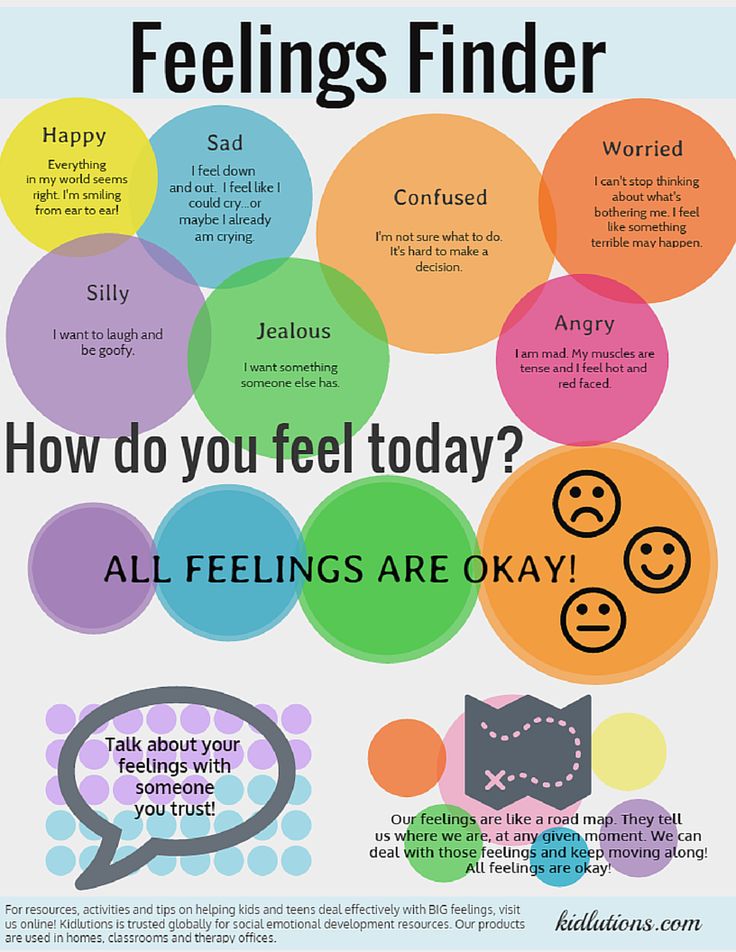 " Such words demonstrate your feelings, making them more understandable to another person. In this case, you will be listened to more carefully and, quite likely, will be offered the sympathy you deserve.
" Such words demonstrate your feelings, making them more understandable to another person. In this case, you will be listened to more carefully and, quite likely, will be offered the sympathy you deserve.
Stop feeling sorry for yourself
Another Goulston model of self-sabotage is self-pity, which has become a very common malady in our society. Abandoned women pity themselves; couples unable to have children; men who "could compete with anyone you want," if only they were given a little rest; people who were neglected by their parents or, conversely, who were over-indulged; people whose parents failed to become role models for them, or worse, died, leaving them alone with a harsh life.
In fact, temporary self-pity can serve as a consolation. Like an animal that licks its wounds, it allows us to relieve some of the pain. However, the constant mood “woe to me, woe!” brings more losses than benefits.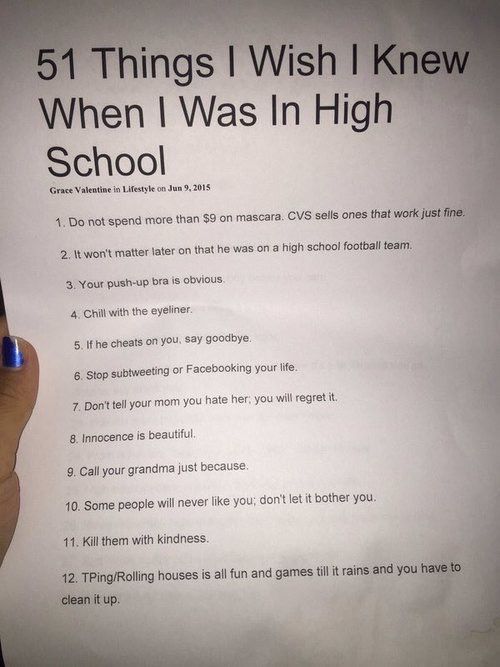 Feeling sorry for yourself consumes energy that could be used to change life for the better. While you are stuck in a bad past, it is impossible to get out into a better future.
Feeling sorry for yourself consumes energy that could be used to change life for the better. While you are stuck in a bad past, it is impossible to get out into a better future.
What to do? If you are determined to constantly feel sorry for yourself, there will certainly be a reason. Your task is to make a 180-degree turn: from moaning to gratitude, from grumbling to gratitude. Look for situations that can give you a new perspective, such as spending more time with people who truly deserve compassion. Do something for someone less fortunate than you. This will not only help you better understand that everything is not so bad for you, but it will also give you a reason to be proud of yourself - and it is impossible to feel proud and sorry for yourself at the same time.
Don't assume that the right path is always the hardest
Many of us have been raised to believe that nothing worthwhile can be achieved without pain and loss. The only thing worthy of being called "the real thing" is hard, exhausting work.
The only thing worthy of being called "the real thing" is hard, exhausting work.
This way of thinking causes us to turn away from those activities that would bring us the most satisfaction. Instead, we choose something more tiring and more difficult. And then, realizing that we can’t cope, we curse ourselves, considering ourselves clumsy. In reality, the problem is that we have not taken up our own business and we do not like it at all.
What to do? If you love what you do, don't feel guilty. On the contrary, look for a way to turn an interesting business into a career.
If you are constantly tormented by disappointment and doubt, think about the fact that you may not be doing what suits you. Look for an activity that brings you joy. The easiest way is often the right one.
Ask people for what you need
It would seem that such a simple action - asking for a favor - meets a lot of resistance. There are many reasons to hush up your needs: someone is afraid of rejection, someone does not want to hurt the feelings of another person, someone regards requests as a sign of weakness.
There are many reasons to hush up your needs: someone is afraid of rejection, someone does not want to hurt the feelings of another person, someone regards requests as a sign of weakness.
Many people think that relatives themselves should guess what we need. This is a childish position: we want people to see all our needs and provide for them - just like our parents did when we were small. As a result, we wait, get offended, get angry, lose precious time and do not get what we want for years.
What to do? Understand and accept your needs. Everyone has them. Realize that no one can read minds - if you do not make a request, no one will know about it. Try to ask without demanding, without criticizing or complaining. Do not beat around the bush, do not cite friends and neighbors as an example, do not blame that you have not been given yet. Formulate the need as a fact: clearly and clearly. Try to provide an opportunity to answer you "yes" or "no".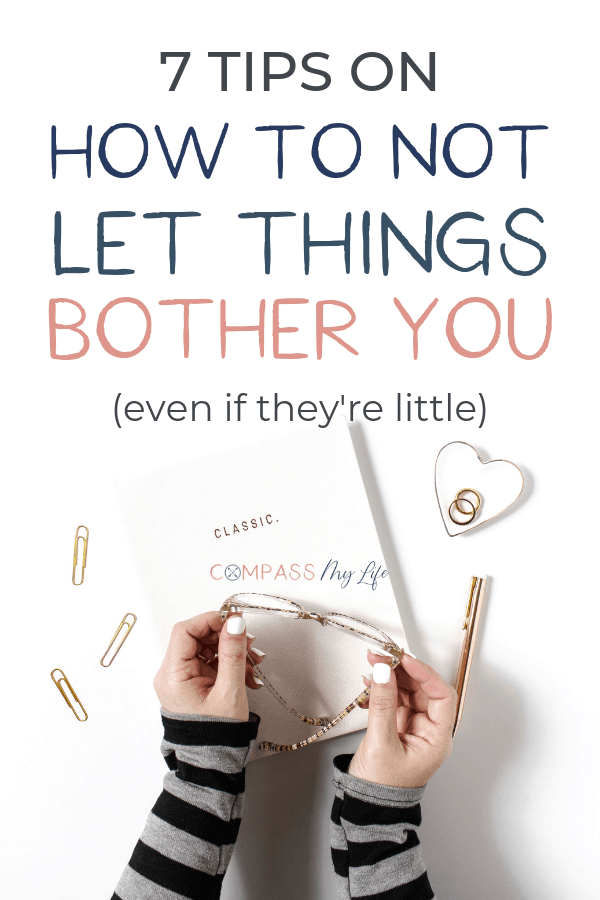 Hoping for agreement is certainly fine, but try not to push it.
Hoping for agreement is certainly fine, but try not to push it.
Don't back down because you don't feel ready
Whether we're about to propose, start a new career, have kids, or finally complain to someone, for some reason we expect to be feel unflappable readiness for it; that we are waiting for a state of mind in which neither tension, nor nasty nausea, nor doubt is known. And when instead of all this we experience severe discomfort, we perceive it as a sign that we are not really ready for such a step.
As Goulston writes, if you succumb to this feeling, the consequences can be catastrophic. After all, everyone knows that people, looking back at their lives, usually regret not what they did, but what they did not dare to do.
What to do? Feeling anxious at the cusp of change is natural. If it is too strong, it may indicate that you are not prepared enough, and not that you are not ready.


